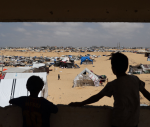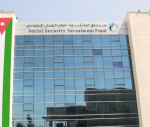You are here
Could social isolation during Ramadan be just what the doctor ordered?
Apr 29,2020 - Last updated at Apr 29,2020
Muslims across the globe started observing the holy month of Ramadan last Friday under a widespread curtailment of civil liberties, stringent lockdowns and tight social and economic restrictions. As COVID-19 continues to expose the fragility of state healthcare infrastructure and exploit existing systemic and societal inequalities, the overlap of Ramadan with a global pandemic might be just what the doctor ordered. As one of the most important pillars of Islam, Ramadan preaches humility, empathy and equality: characteristics that can help bring people closer, enhancing solidarity even as we are being kept apart.
For Muslims, Ramadan manifests itself physically through the practice of fasting from sunrise to sunset. On a spiritual level, it signifies a month of self-reflection that is meant to keep us grounded with thoughts of what is important in life and in touch with our inner wellbeing and sense of communal responsibility. Ramadan creates space for the most vulnerable among us, and encourages lending a helping hand, circumstances similar to what we have been seeing during the COVID-induced isolation.
In practice, however, social distancing is curtailing a range of Ramadan rituals. Usually, Ramadan is a hugely social season, where family and friends gather to share meals whether that be in one’s home, in restaurants, or in mosques. Many, if not all, of these practices are now banned in most Muslim-majority countries, making an already physically challenging month even harder.
Muslim countries across the world are taking enhanced measures to restrict the social dimension of Ramadan, though the restrictions vary from one country to another. Egypt has banned all group activities related to the holy month, and the majority of Muslim countries have suspended the “Tarawih” – a daily mass communal prayer that happens after Iftar, the breaking of the fast. And while Saudi Arabia has closed the two holy mosques in Mecca and Medina for the duration of Ramadan, Pakistan has drawn criticism for continuing to allow prayers at mosques as long as worshippers bring their own prayer mat and stay six feet apart.
There is an economic dimension to this as well. Prices typically rise during Ramadan as families pour into markets in the evening to shop for the traditional ingredients used in meals to break the fast, but prices are skyrocketing in Jordan, Afghanistan, Pakistan and Algeria, among other countries. Combined with what were already significant spikes in prices induced by the pandemic, people are suffering, and governments across the Middle East are retaliating with inspections to ensure fair pricing. A similar effort to keep prices down was introduced at the start of the COVID19 crisis, and many governments have simply doubled down on these initiatives.
From a public health perspective, questions continue to circle concerning the health implications of fasting. It is unclear if fasting affects the immune system enough to hinder one's ability to fight off COVID-19, and there are steps people can take to ensure they remain as healthy as possible. And while no studies have clearly shown increased risk, the president of Tajikistan has urged his people to forego fasting in order to protect against “infectious diseases,” even as he continues to deny that there were any cases of COVID-19 in the country.
Furthermore, according to the Koran, individuals that are sick during Ramadan are allowed to donate funds instead of fasting to preserve their health. This accommodation is because the practice is not intended to inflict pain or struggle, rather it was meant to ground people and realign them towards what matters in their lives.
All these restrictions affect the most vulnerable in society the hardest. These are the individuals who have suffered the most since the beginning of the pandemic, and will continue to suffer during Ramadan as it grows more difficult to secure your iftar meal in a locked down world. Our social safety nets have, for the most part, thankfully managed to lessen the COVID-19 blow, but Ramadan has the potential to expose fresh vulnerabilities. For many Muslims, safely observing this holy month will hinge on their ability to access broader safety nets, economic support policies, and the kindness and solidarity of those within their society who are able to assist the vulnerable.
Ramadan’s beauty lies in its ability to foster a sense of togetherness and selflessness, helping Muslims to empathise with those that are unable to live a decent life under normal circumstances. While this will be harder to achieve during a pandemic, the values of Ramadan should still compel those who are financially able to support their community. Ramadan donations are likely needed more than before to lessen the blow of these disruptive restrictions during this Holy month. Muslims will need to power through with deeper solidarity and try to think of innovative ways to bring people closer together while being apart. YouTube-streamed Tarawih prayers, Zoom iftars and interactive family shows are some of the creative solutions that will make this month easier for all Muslims.
The silver lining of this holy month happening alongside COVID-19 is the potential for deeper reflection and shifts in behaviour on both a societal and individual front. COVID-19 has given people of all religious beliefs an equal chance to exhibit what Ramadan attempts to do every year for Muslims; paving the way for righteousness, empathy and hopefully more inner peace.












